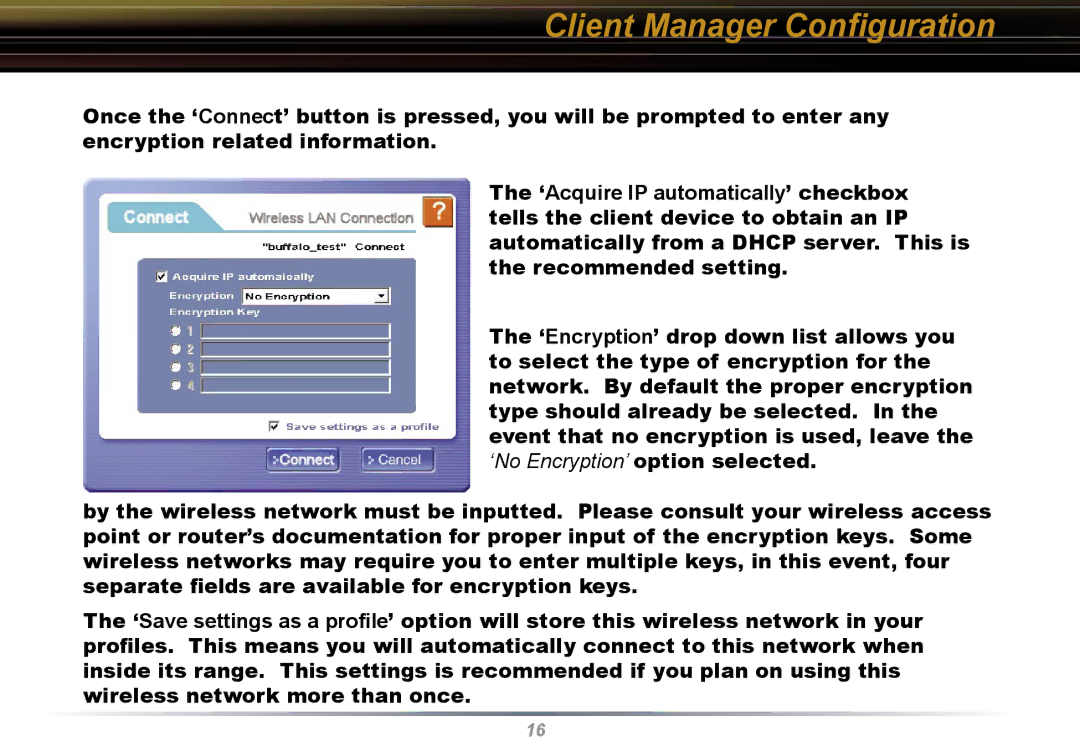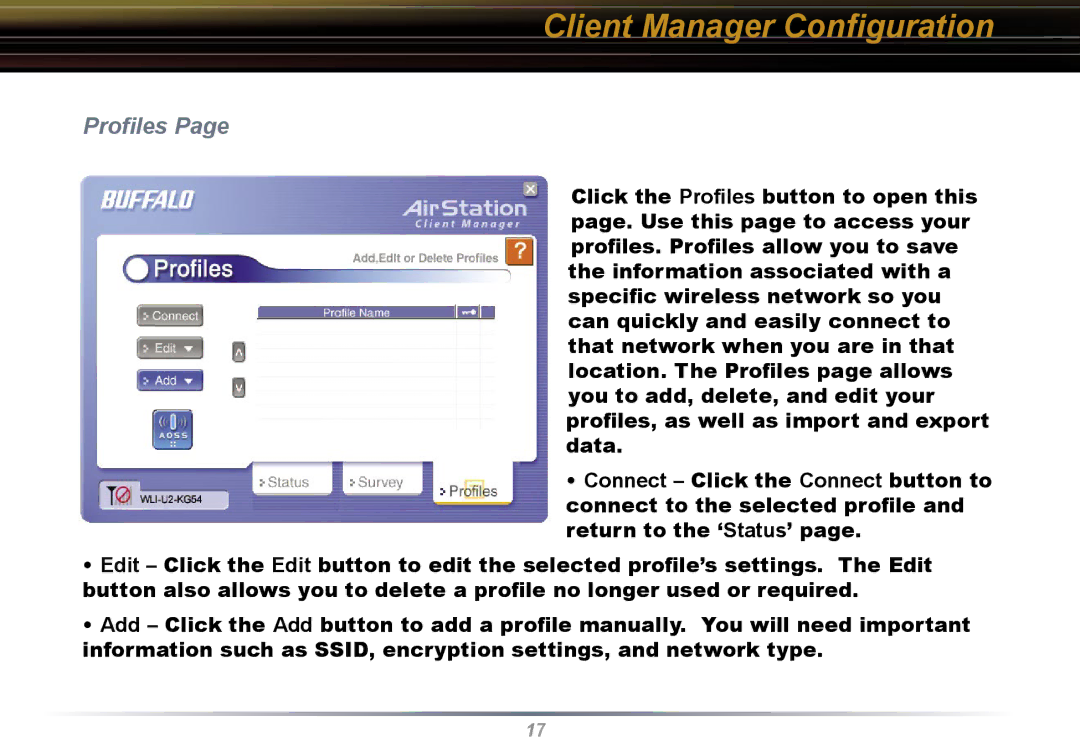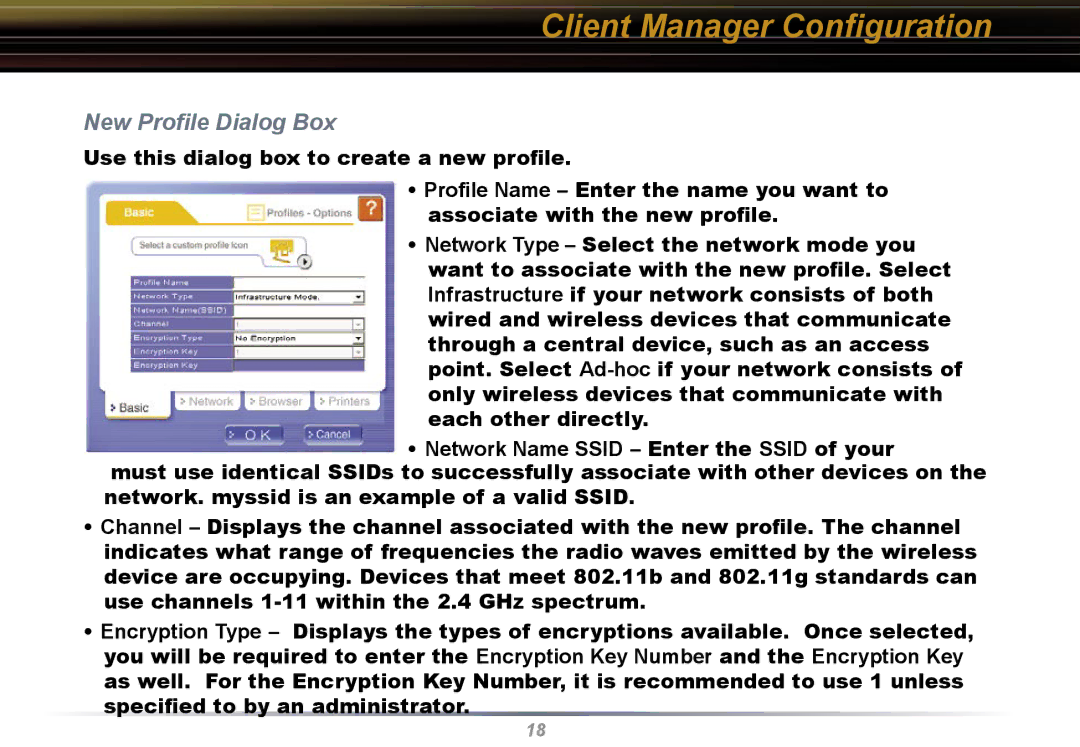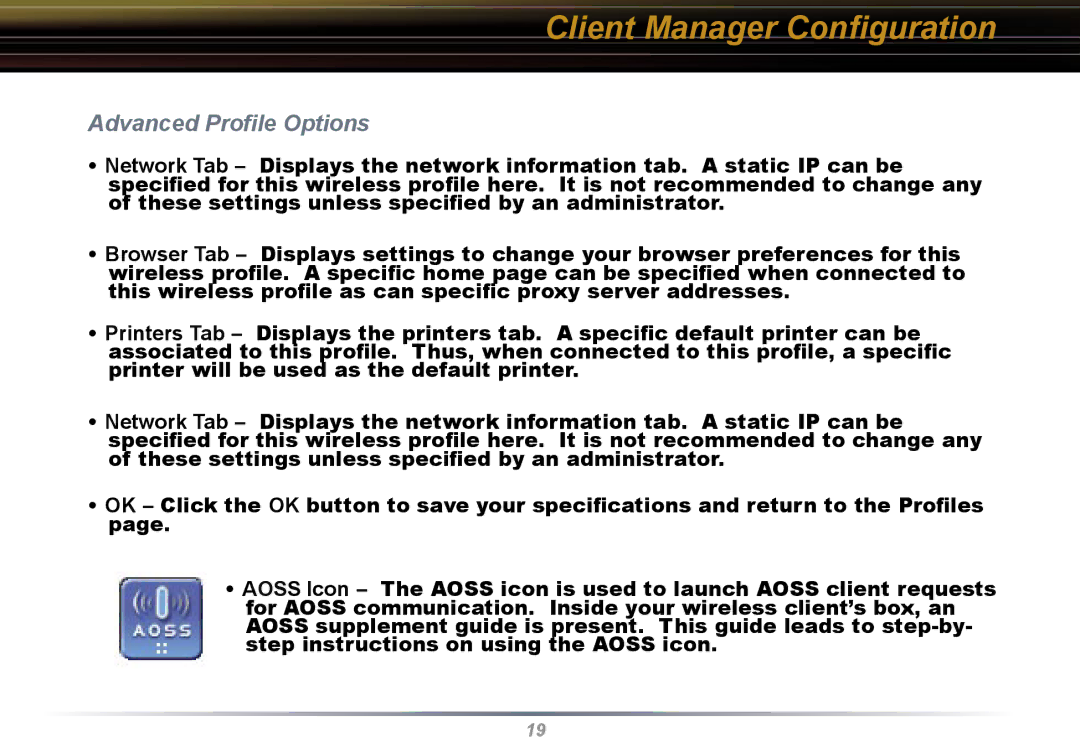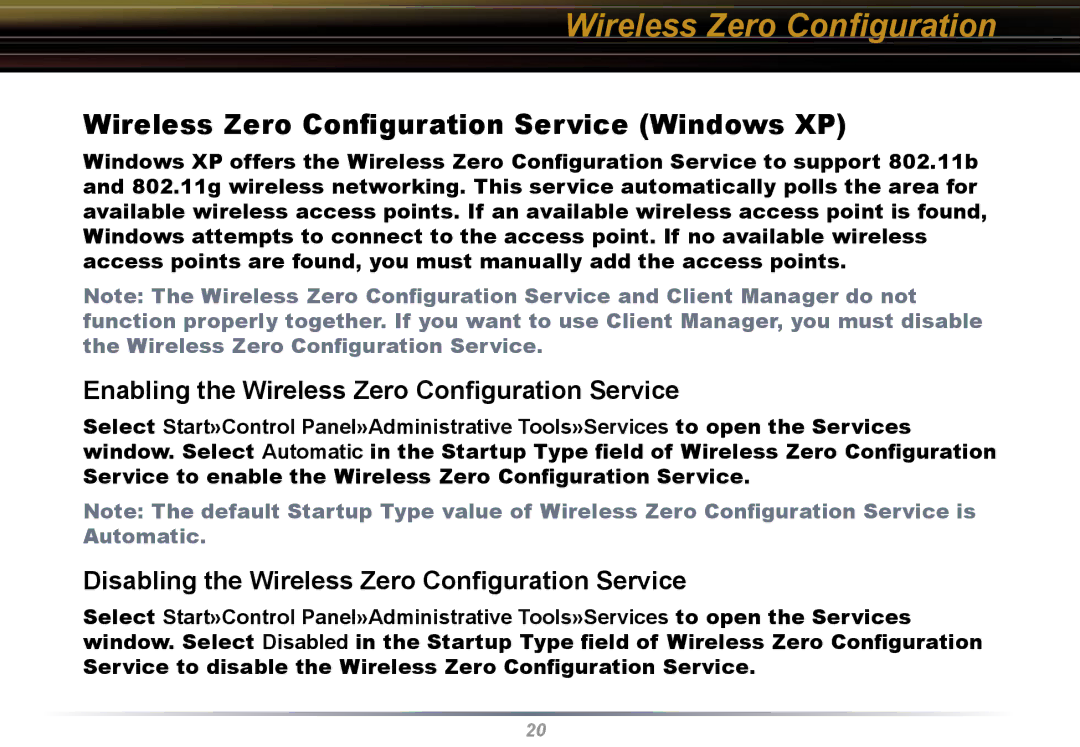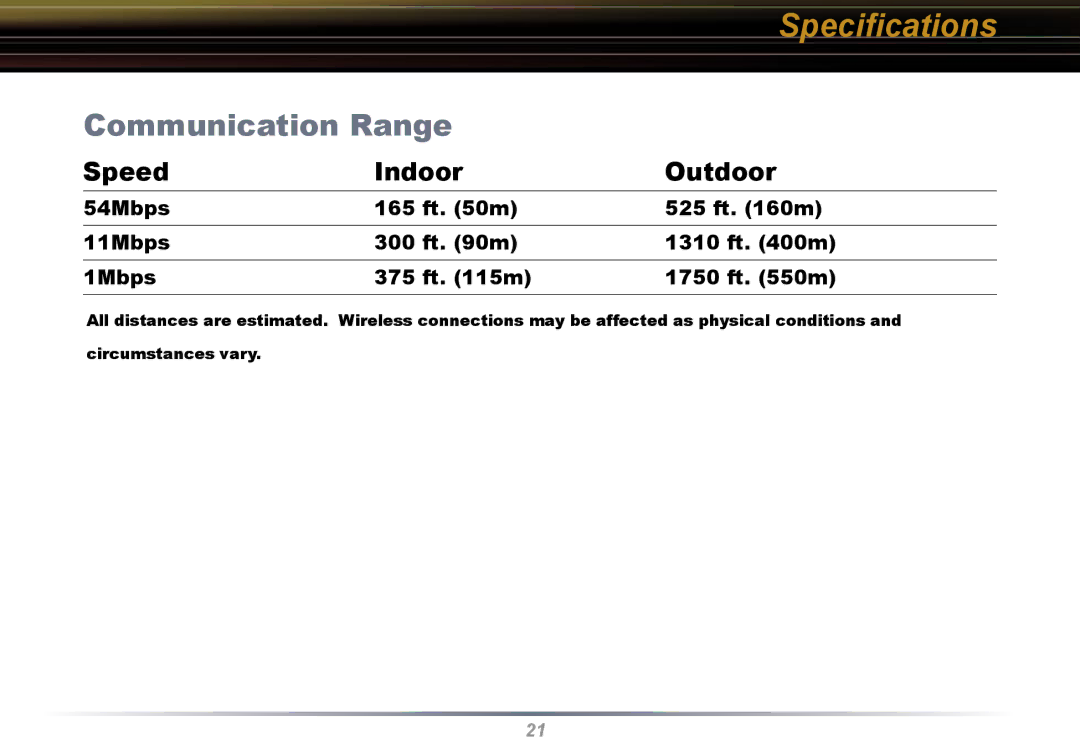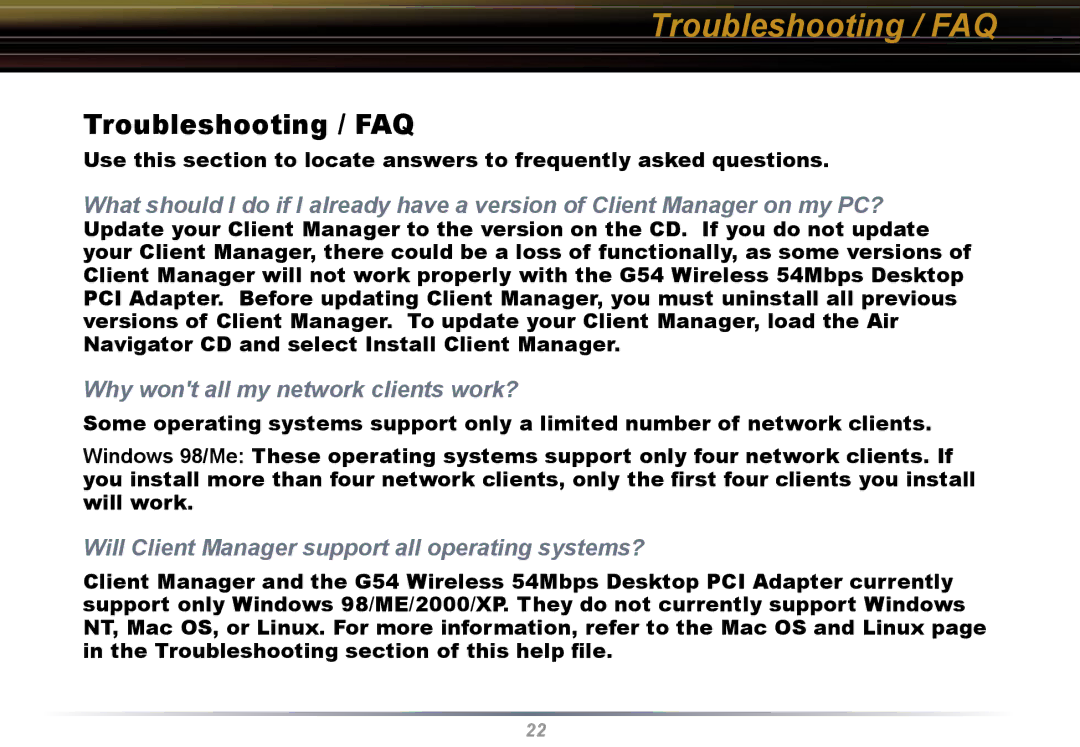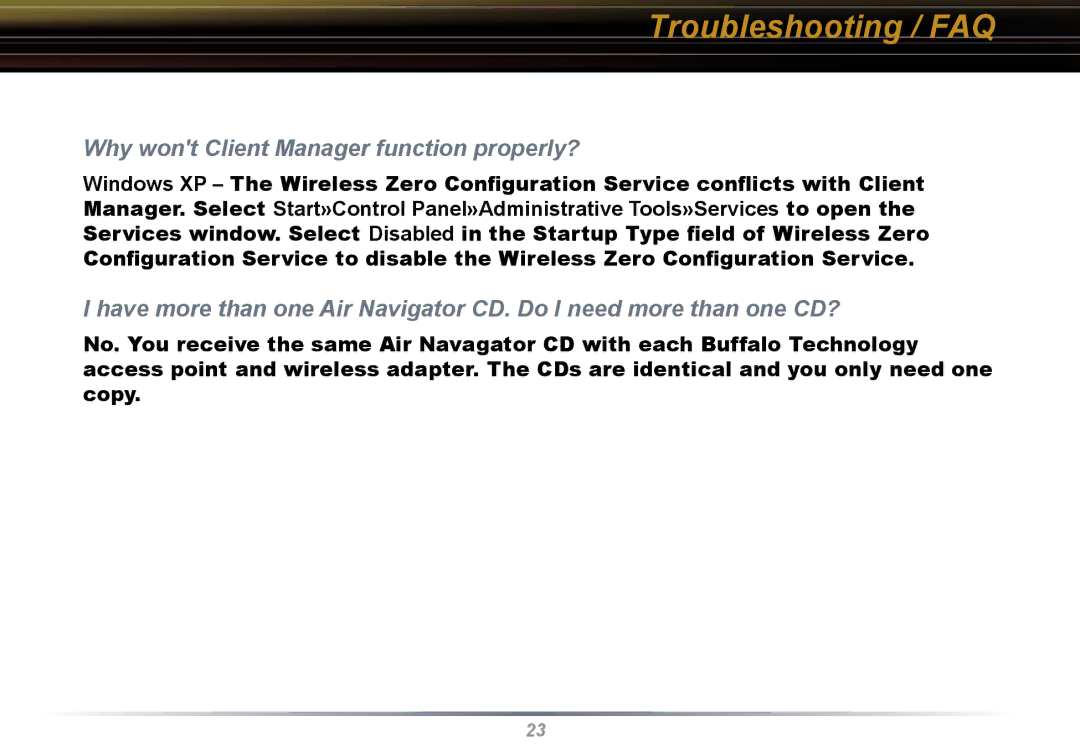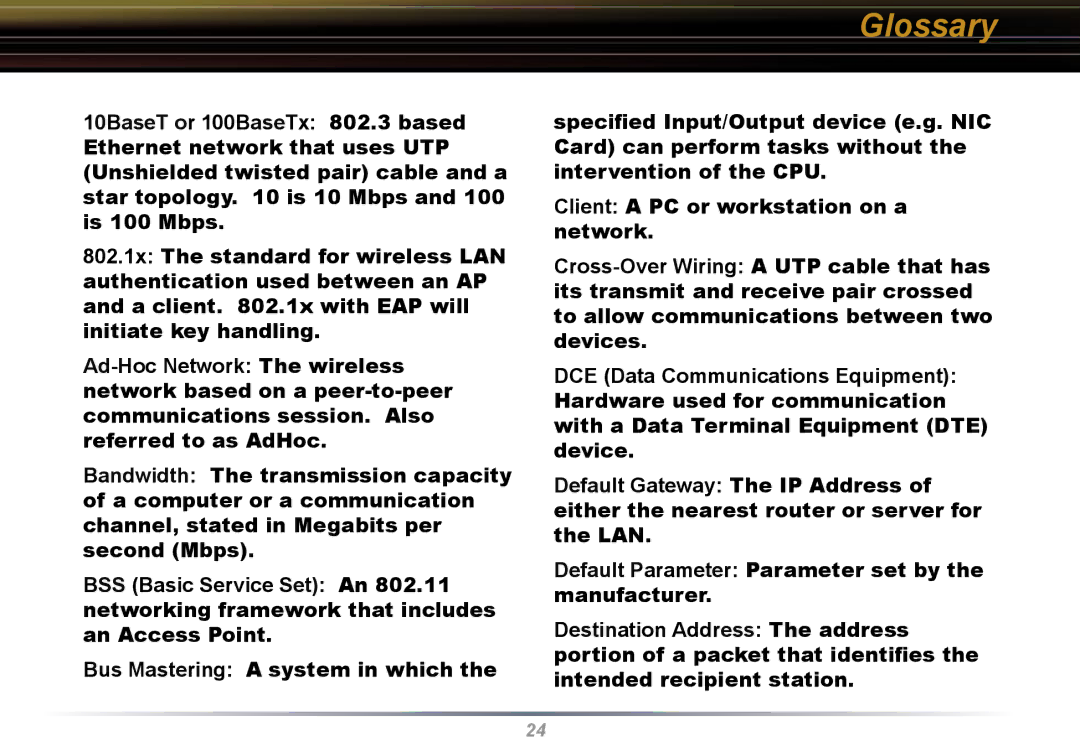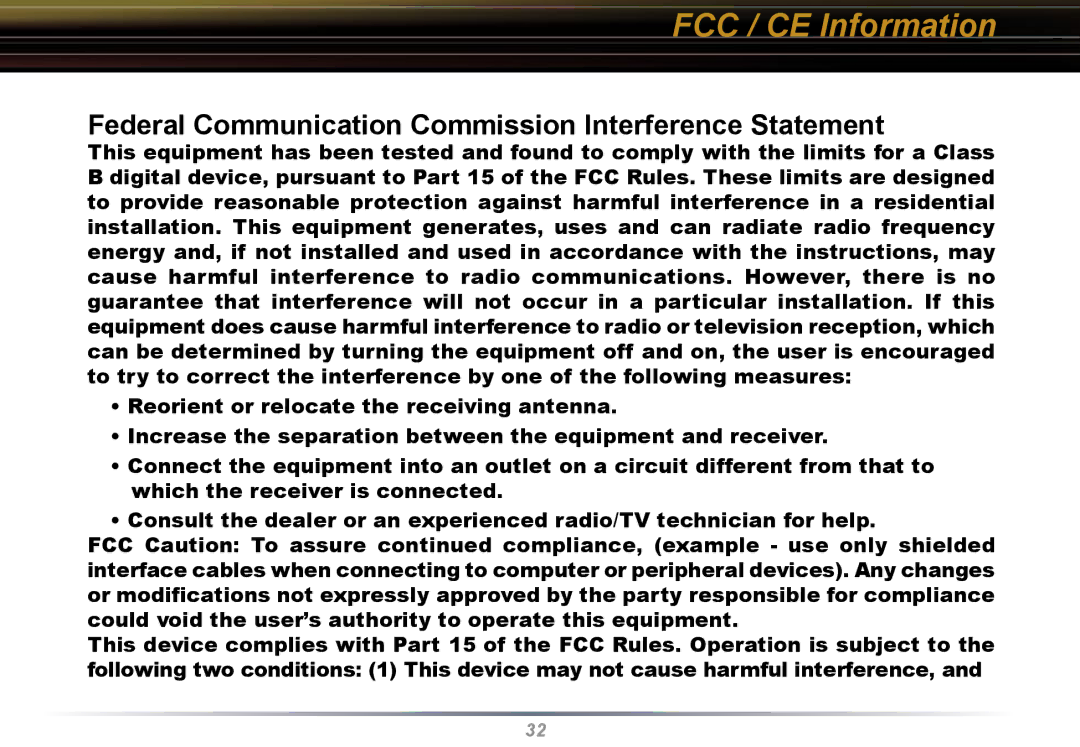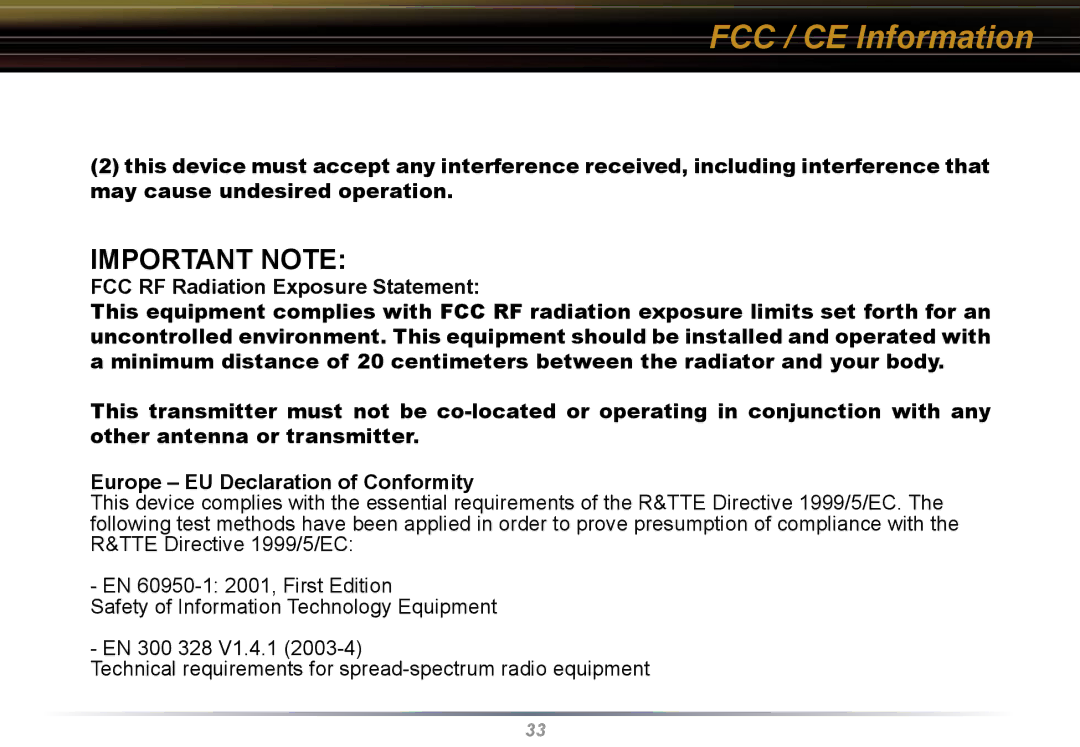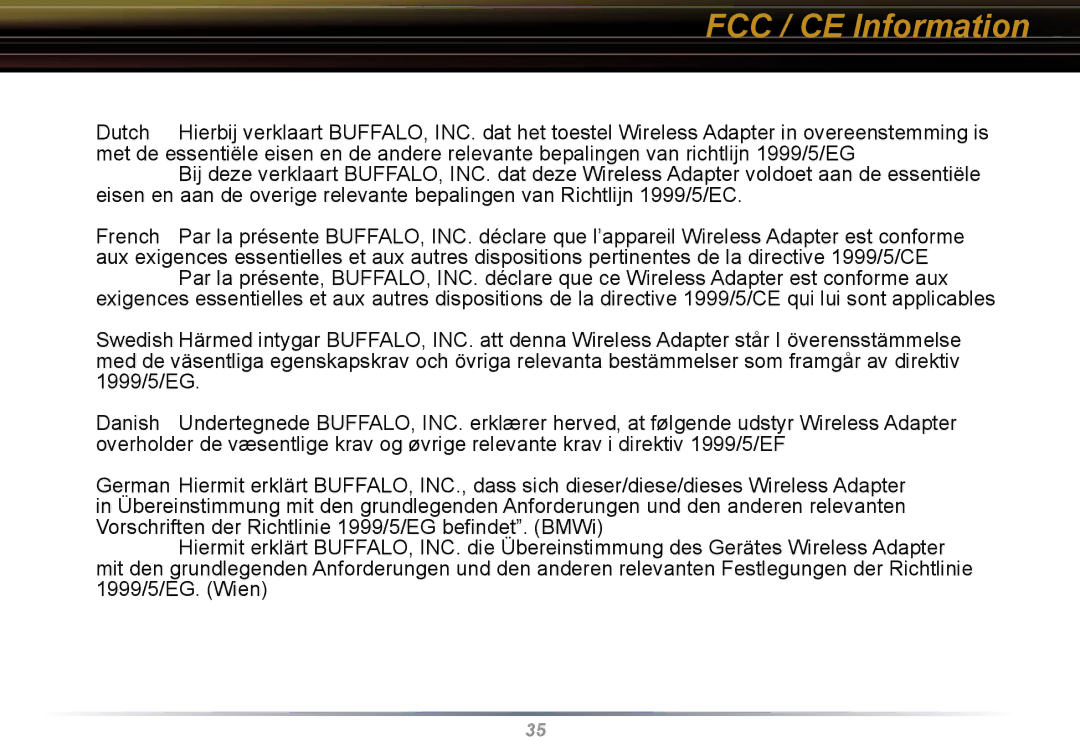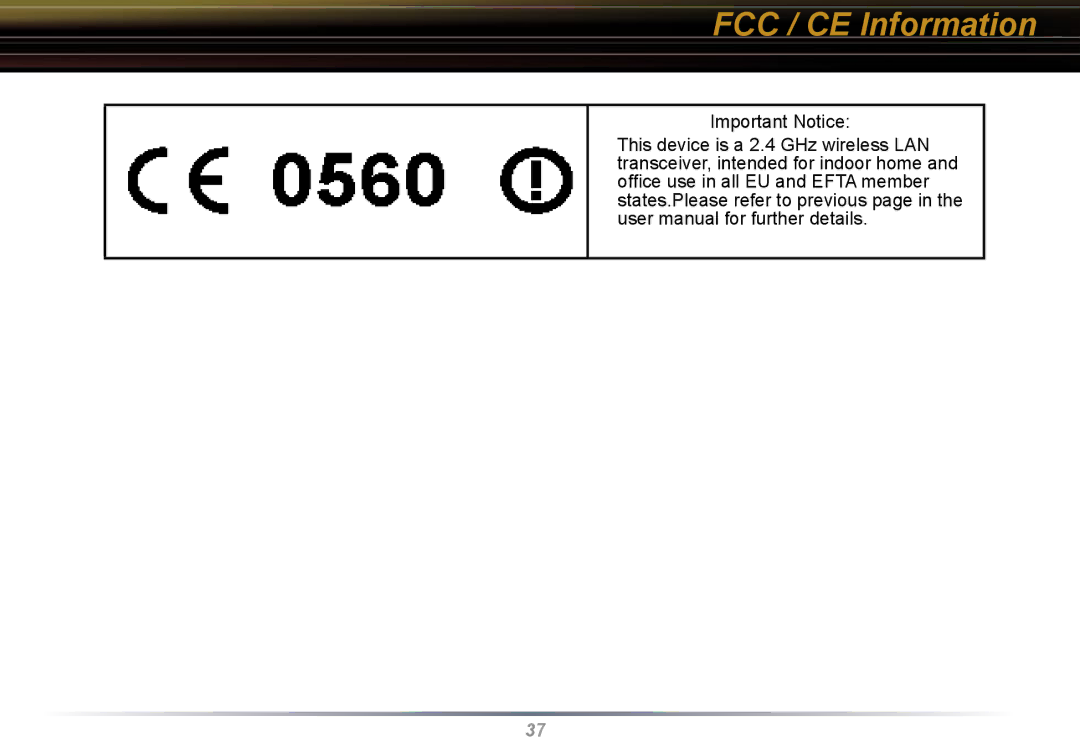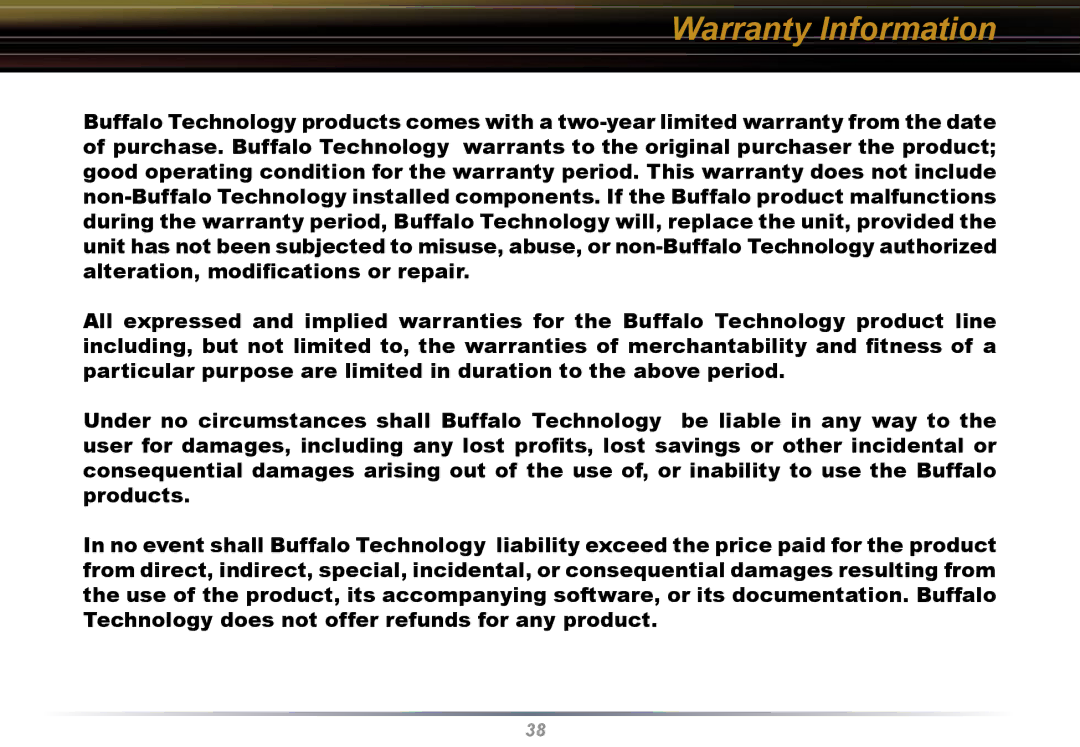
Glossary
periods.
TCP/IP (Transmission Control Protocol/Internet Protocol: Protocol used by computers when communicating across the Internet or Intranet.
TFTP (Trivial File Transfer Protocol): Simple form of FTP (File Transfer Protocol), which Uses UDP (User Datagram Protocol), rather than TCP/IP for data transport and provides no security features.
TKIP (Temporal Key Integrity Protocol): An encryption method replacing WEP. TKIP uses random IV and frequent key exchanges.
Topology: The shape of a LAN (Local Area Network) or other communications system.
Twisted Pair: Cable that comprises 2 or more pair of insulated wires twisted together.
UDP (User Datagram Protocol): A communication method (protocol) that offers a limited amount of service when messages are exchanged between computers in a network. UDP is used as an alternative to TCP/IP.
Uplink: Link to the next level up in a communication hierarchy.
UTP (Unshielded Twisted Pair) cable: Two or more unshielded wires twisted together to form a cable.
WAN (Wide Area Network): A networking system covering a wide geographical area.
31
